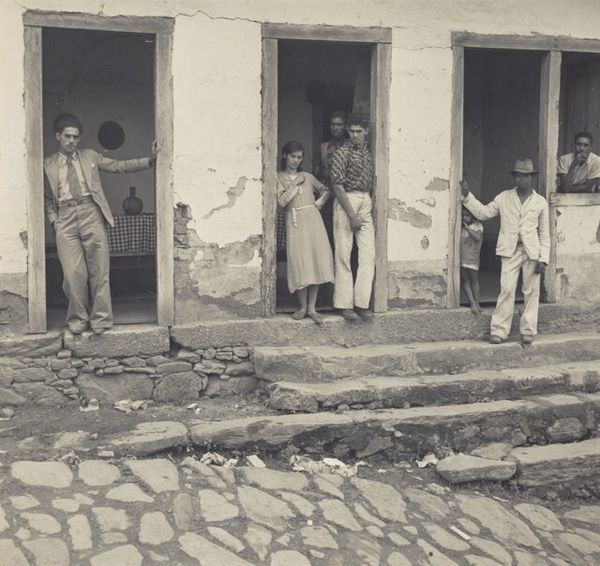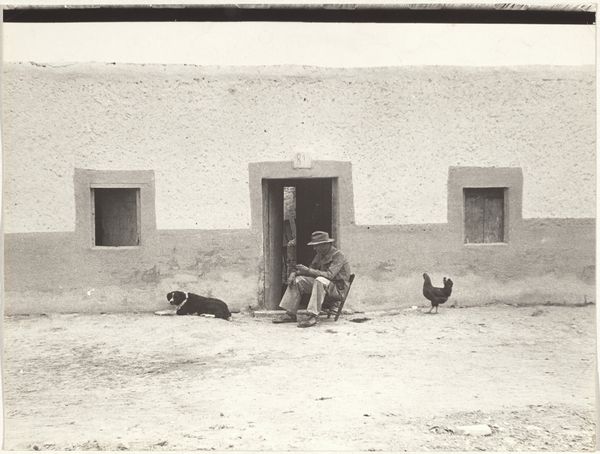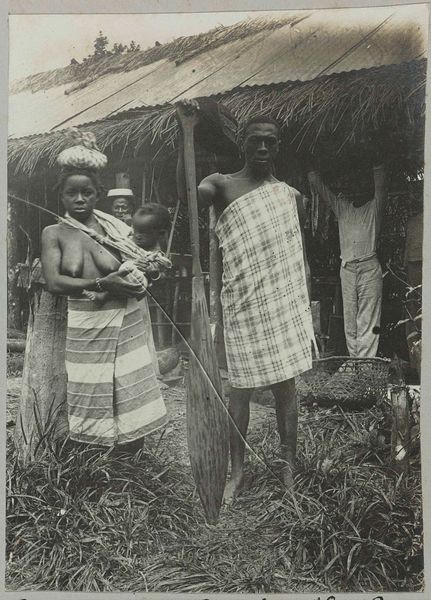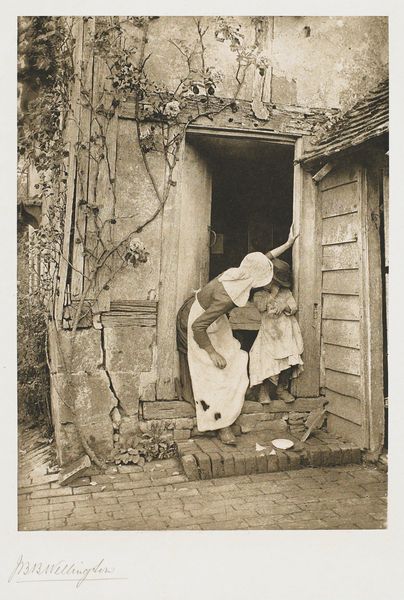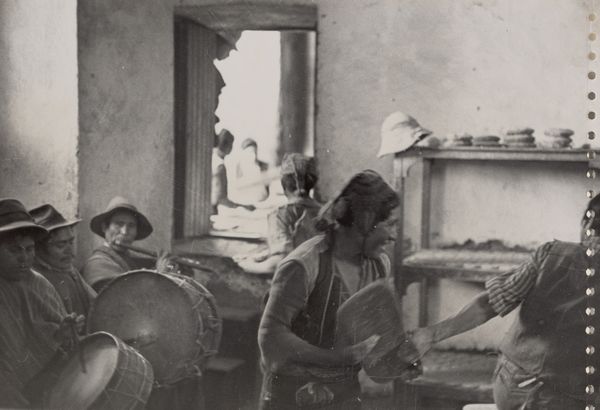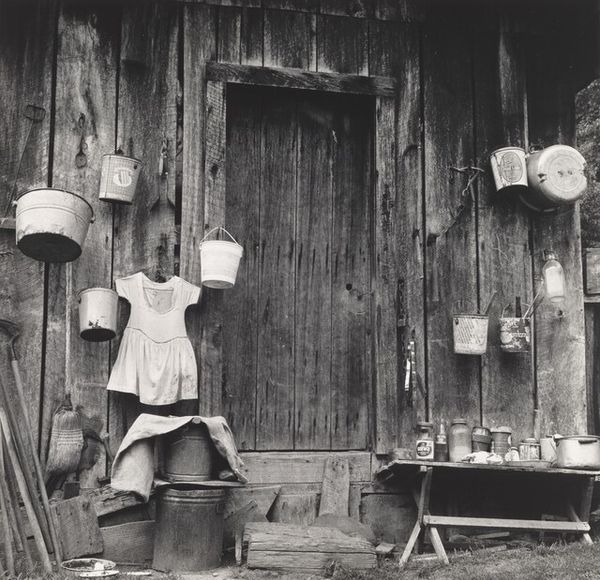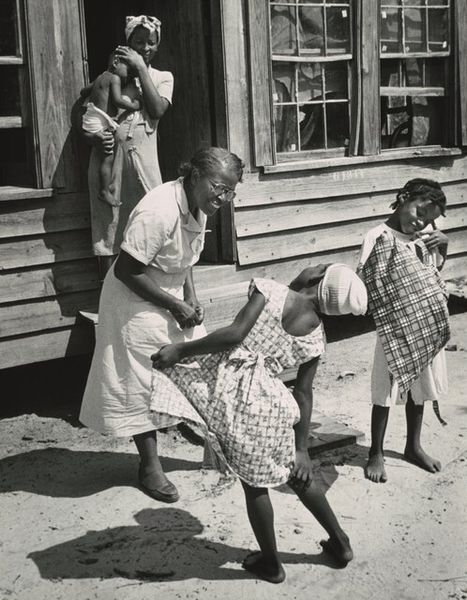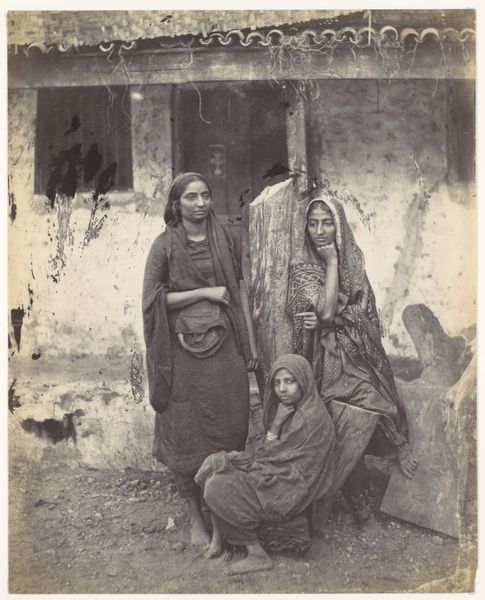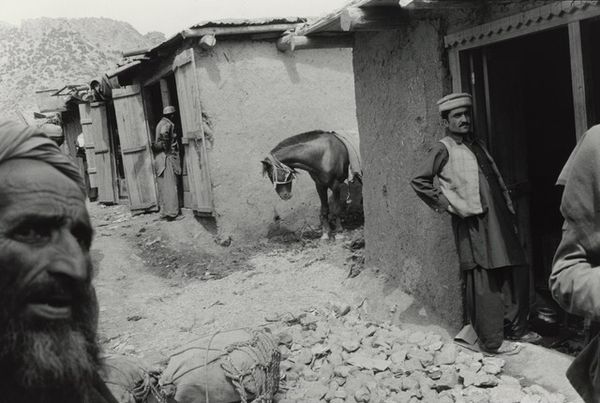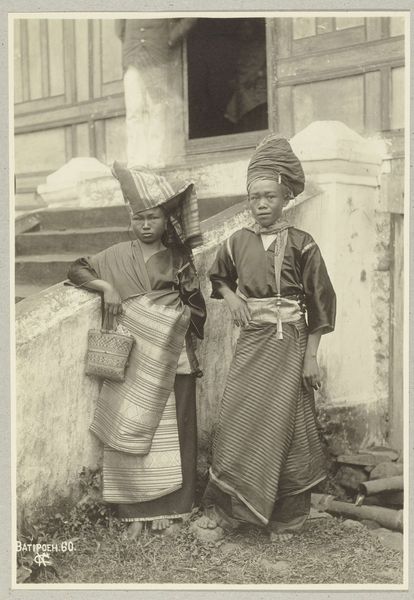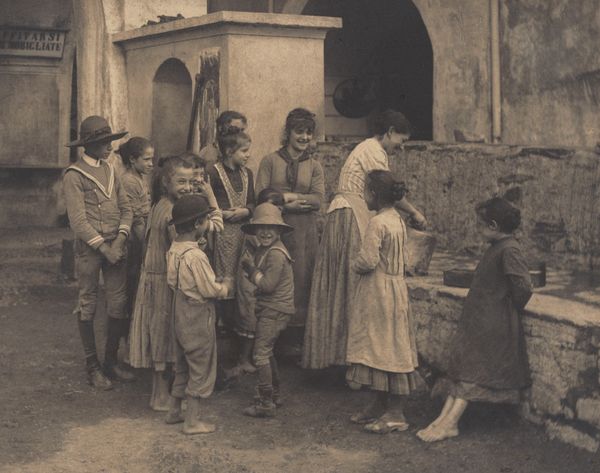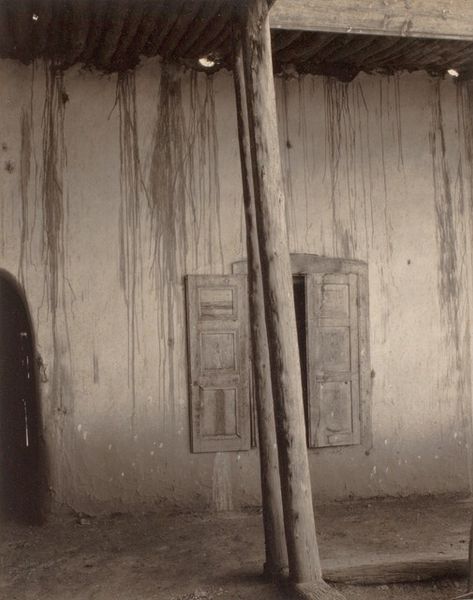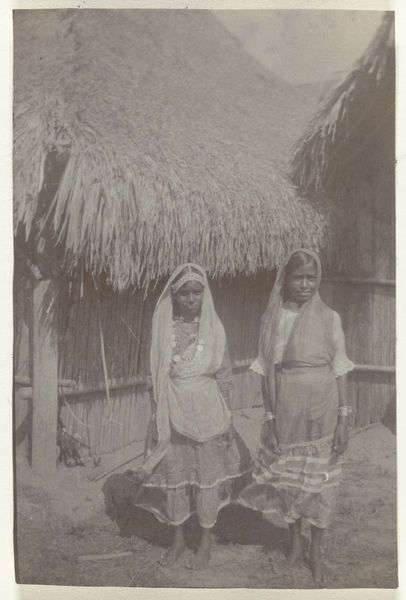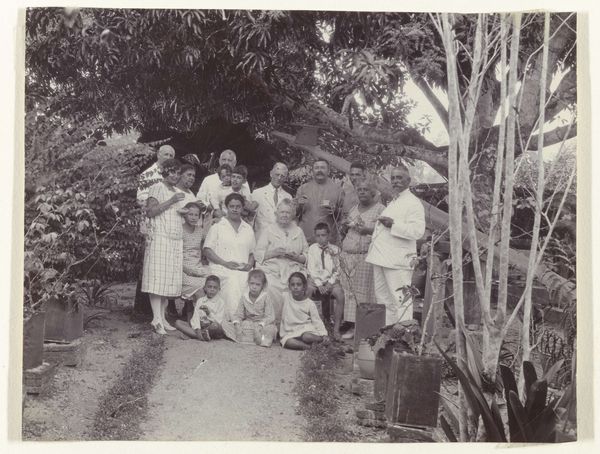
photography, gelatin-silver-print
#
black and white photography
#
photography
#
black and white
#
gelatin-silver-print
#
monochrome photography
#
monochrome
#
realism
#
monochrome
Dimensions: image: 19 × 28 cm (7 1/2 × 11 in.) sheet: 24.5 × 35 cm (9 5/8 × 13 3/4 in.)
Copyright: National Gallery of Art: CC0 1.0
Editor: This is "Cuchumatanes Mountains, Guatemala," a 1975 black and white photograph by Ed Grazda. It has such an intimate, domestic feel. What stands out to you about this image? Curator: For me, this image resonates deeply with themes of resilience and the everyday lives of Indigenous communities facing political upheaval. How does the framing—the placement of the subjects within their domestic space—speak to you? Consider the context of 1970s Guatemala. Editor: I guess I hadn’t thought about the political context. I just saw a mother and child outside their home. It feels very personal, very grounded. Curator: Exactly, and it's precisely that grounding that's so powerful. Grazda captures the dignity and continuity of life amidst potential turmoil. The decorations, the animals, the woodpile – these elements narrate the inhabitants' relationship with their land and cultural identity. Does knowing it was taken during a politically unstable time change how you read it? Editor: It does, definitely. The "Recuerdo" inscription on the wall suddenly feels loaded. Is it a personal memento, or something more political? A quiet act of resistance? Curator: Precisely! The photograph prompts questions about memory, resistance, and representation. Whose stories are being told and how? Grazda, as an outsider, enters a complex dynamic, but, regardless, he has crafted a visual testament. It allows us a poignant glimpse into lives often unseen or misrepresented. Editor: I see the image differently now. It’s not just a slice of life; it's a statement about perseverance and cultural identity. Curator: And perhaps, a testament to the power of photography to amplify marginalized voices and document historical moments through a personal lens. Editor: Thanks! Thinking about that historical context made me really understand the photograph on a whole new level.
Comments
No comments
Be the first to comment and join the conversation on the ultimate creative platform.
